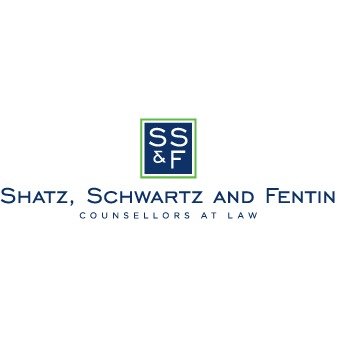Best Private Client Lawyers in Massachusetts
Share your needs with us, get contacted by law firms.
Free. Takes 2 min.
Or refine your search by selecting a city:
List of the best lawyers in Massachusetts, United States
United States Private Client Legal Articles
Browse our 1 legal article about Private Client in United States written by expert lawyers.
- Estate Tax 2026 Outlook: United States Exemption Sunset Prep
- Federal estate and gift tax exemption is historically high (over $13 million per person in 2024) but is scheduled to drop by roughly half after December 31, 2025. The IRS "use it or lose it" rules let you lock in the current higher exemption with lifetime gifts; if you wait... Read more →
About Private Client Law in Massachusetts, United States
Private Client law in Massachusetts focuses on helping individuals and families manage and protect their personal wealth, assets, and interests. This legal field covers estate planning, trusts, wills, probate, elder law, charitable planning, tax planning, and more. Private Client attorneys assist with navigating the state and federal laws that govern how assets are distributed, protected, and transferred, and they help ensure clients' wishes are preserved after their passing or in times of incapacity. Massachusetts has its own unique statutes and procedures that affect how these matters are handled.
Why You May Need a Lawyer
People in Massachusetts often require the assistance of a Private Client lawyer for a variety of reasons, including:
- Creating or updating wills and trusts to ensure assets are passed to loved ones efficiently
- Navigating the probate process following the death of a family member or loved one
- Planning for incapacity with documents like powers of attorney or healthcare proxies
- Minimizing estate and gift taxes through strategic planning
- Creating special needs trusts for dependents with disabilities
- Advising business owners on succession planning and asset protection
- Assisting with charitable giving strategies and philanthropic goals
- Resolving disputes involving estates, trusts, or guardianships
- Addressing blended family or complex family circumstances in estate plans
- Compliance with local, state, and federal regulations that affect families and individuals
Local Laws Overview
Massachusetts has several important laws and rules that impact Private Client legal matters:
- Massachusetts Uniform Probate Code (MUPC): This code governs the probate of wills, administration of estates, and other related procedures in Massachusetts. It outlines the process for appointing executors, distributing assets, and resolving disputes.
- Estate and Inheritance Taxes: Massachusetts imposes its own estate tax, which applies to estates exceeding a certain threshold. This is in addition to federal estate taxes, and proper planning is essential to minimize tax liability.
- Trust Law: Massachusetts law recognizes various types of trusts, such as revocable, irrevocable, and special needs trusts, each with specific purposes and requirements.
- Guardianship and Conservatorship: The state sets forth procedures for appointing guardians or conservators for individuals who cannot make decisions for themselves due to incapacity.
- Health Care Proxies and Advance Directives: These legal documents allow individuals to appoint someone to make healthcare decisions if they become unable to do so.
- Homestead Protection: Massachusetts law allows homeowners to declare a homestead exemption to protect equity in their primary residence from certain creditors.
Due to these and other local requirements, it is important to seek legal guidance specific to Massachusetts.
Frequently Asked Questions
What is probate and how does it work in Massachusetts?
Probate is the legal process through which a deceased person's assets are distributed according to their will or, if there is no will, in accordance with state law. In Massachusetts, the probate court supervises this process to ensure debts are paid and assets are distributed properly.
Do I need a will or a trust?
Both wills and trusts are important estate planning tools, but they serve different purposes. Wills direct how your assets are distributed after death and appoint guardians for minor children. Trusts can help avoid probate, manage assets for beneficiaries, and reduce taxes. An attorney can advise which is best for your needs.
How much estate tax will my estate owe in Massachusetts?
Massachusetts has its own estate tax that applies if the estate value exceeds a certain threshold. The amount owed depends on the total value of the estate and applicable deductions. An estate planning attorney can provide an estimate based on your circumstances.
What happens if I die without a will in Massachusetts?
If you die without a will, your assets will be distributed by the court according to Massachusetts intestacy laws. This may not align with your wishes, especially if you have specific beneficiaries or nontraditional family arrangements.
Can I minimize taxes on my estate?
Yes, there are legal strategies to minimize federal and Massachusetts estate taxes, such as gifting during your lifetime, establishing trusts, or making charitable contributions. These strategies require careful planning with a qualified professional.
What is a power of attorney and why do I need one?
A power of attorney is a legal document that designates someone to make financial or legal decisions on your behalf if you are unable to do so. It is a fundamental part of an estate plan for managing affairs during incapacity.
How can I provide for a loved one with special needs?
A special needs trust allows you to set aside funds for a disabled loved one without affecting their eligibility for government benefits. This is a complex area, so professional guidance is recommended.
What is a health care proxy?
In Massachusetts, a health care proxy lets you appoint someone to make medical decisions for you if you are incapacitated. It is important to have this document in place to ensure your health care wishes are honored.
Do I need to update my estate plan after moving to or from Massachusetts?
Yes, it is wise to update your estate plan any time you change residency because different states have different laws regarding wills, trusts, probate, and taxes.
How often should I review or update my estate plan?
It is recommended to review your estate plan at least every few years, or when you experience significant life changes such as marriage, divorce, birth of a child, or major changes in assets.
Additional Resources
If you need more information or assistance, the following resources may be helpful:
- Massachusetts Probate and Family Court - oversees probate, guardianship, and related matters
- Massachusetts Attorney General's Office - provides legal information and consumer resources
- Massachusetts Bar Association - offers a lawyer referral service and educational materials
- Executive Office of Elder Affairs - resources on elder law, health care proxies, and long-term care
- Internal Revenue Service - guidance on federal tax implications for estates and gifts
Next Steps
If you believe you need legal assistance in any aspect of Private Client law in Massachusetts, consider these next steps:
- Gather all relevant documents, such as wills, trusts, property records, and financial statements
- Make a list of your questions and concerns about your estate, family situation, or goals
- Contact a qualified estate planning or Private Client attorney licensed in Massachusetts
- Schedule an initial consultation to review your situation, ask questions, and discuss your options
- Follow your attorney's advice to update or create new legal documents as needed
- Continue to review your plan periodically to ensure it remains up to date with laws and life changes
Professional legal advice can give you peace of mind and ensure your personal, financial, and family interests are properly protected under Massachusetts law.
Lawzana helps you find the best lawyers and law firms in Massachusetts through a curated and pre-screened list of qualified legal professionals. Our platform offers rankings and detailed profiles of attorneys and law firms, allowing you to compare based on practice areas, including Private Client, experience, and client feedback.
Each profile includes a description of the firm's areas of practice, client reviews, team members and partners, year of establishment, spoken languages, office locations, contact information, social media presence, and any published articles or resources. Most firms on our platform speak English and are experienced in both local and international legal matters.
Get a quote from top-rated law firms in Massachusetts, United States — quickly, securely, and without unnecessary hassle.
Disclaimer:
The information provided on this page is for general informational purposes only and does not constitute legal advice. While we strive to ensure the accuracy and relevance of the content, legal information may change over time, and interpretations of the law can vary. You should always consult with a qualified legal professional for advice specific to your situation.
We disclaim all liability for actions taken or not taken based on the content of this page. If you believe any information is incorrect or outdated, please contact us, and we will review and update it where appropriate.
Browse private client law firms by service in Massachusetts, United States
Massachusetts, United States Attorneys in related practice areas.
Browse private client law firms by city in Massachusetts
Refine your search by selecting a city.













